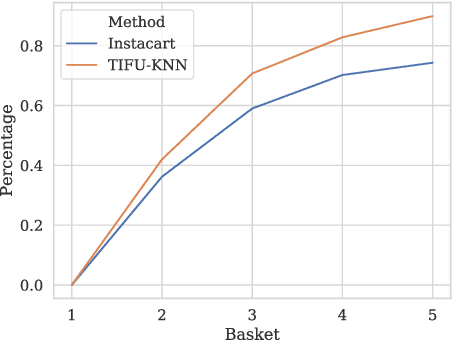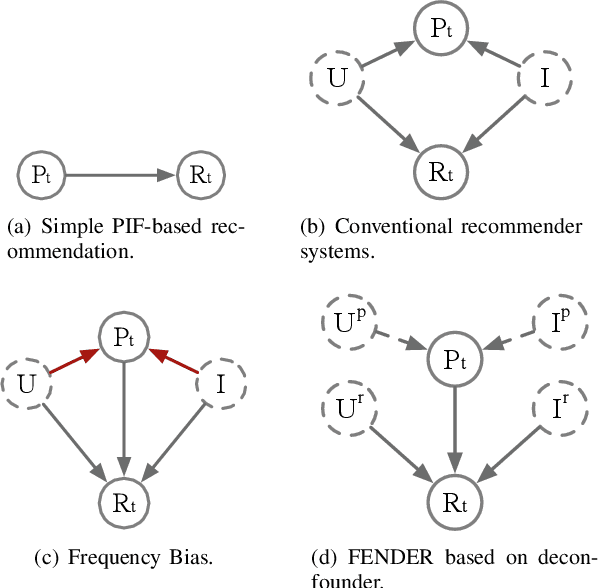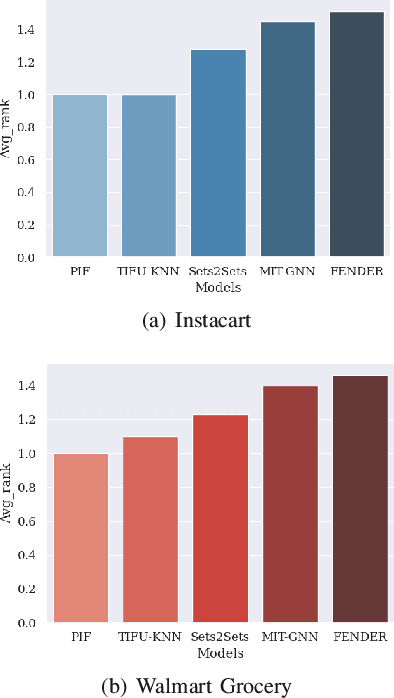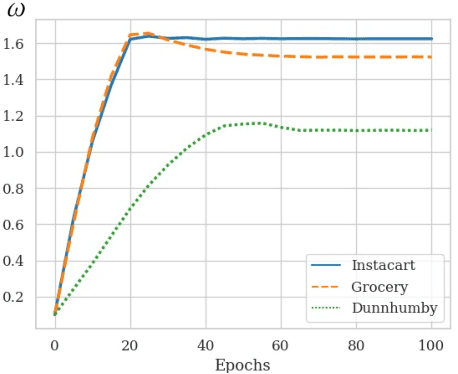Mitigating Frequency Bias in Next-Basket Recommendation via Deconfounders
Paper and Code
Nov 16, 2022



Recent studies on Next-basket Recommendation (NBR) have achieved much progress by leveraging Personalized Item Frequency (PIF) as one of the main features, which measures the frequency of the user's interactions with the item. However, taking the PIF as an explicit feature incurs bias towards frequent items. Items that a user purchases frequently are assigned higher weights in the PIF-based recommender system and appear more frequently in the personalized recommendation list. As a result, the system will lose the fairness and balance between items that the user frequently purchases and items that the user never purchases. We refer to this systematic bias on personalized recommendation lists as frequency bias, which narrows users' browsing scope and reduces the system utility. We adopt causal inference theory to address this issue. Considering the influence of historical purchases on users' future interests, the user and item representations can be viewed as unobserved confounders in the causal diagram. In this paper, we propose a deconfounder model named FENDER (Frequency-aware Deconfounder for Next-basket Recommendation) to mitigate the frequency bias. With the deconfounder theory and the causal diagram we propose, FENDER decomposes PIF with a neural tensor layer to obtain substitute confounders for users and items. Then, FENDER performs unbiased recommendations considering the effect of these substitute confounders. Experimental results demonstrate that FENDER has derived diverse and fair results compared to ten baseline models on three datasets while achieving competitive performance. Further experiments illustrate how FENDER balances users' historical purchases and potential interests.
 Add to Chrome
Add to Chrome Add to Firefox
Add to Firefox Add to Edge
Add to Edge